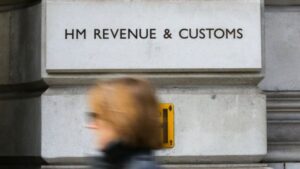Tax dodging and non-compliance during the pandemic cost the government £9bn, Whitehall’s spending watchdog has found.
The loss to the public purse came as HM Revenue & Customs (HMRC) moved thousands of tax compliance staff to Covid support schemes, reducing its capacity to investigate people and businesses not paying the right amount, according to the National Audit Office.
About 1,350 workers were redeployed to Covid schemes throughout 2020-2021, shrinking the number of those working on tax compliance by 12%, the NAO said.
Before the pandemic, tax revenues from HMRC’s compliance work were on average 5.2% of its total revenues. This dropped to 4.2% between 2020-2022 – a £9bn reduction.
During the pandemic, HMRC paused many inquiries into suspected non-compliance, except in cases of potential fraud or criminal activity, closing 29% fewer cases in 2020-21 than in the previous year. Lockdowns meant the department also conducted fewer in-person investigations.
With many courts not operating at the time, criminal prosecutions for tax-related offences plummeted to 163 in 2020-21 from about 700 in the year before.
Instead of returning to normal levels after the pandemic, HMRC analysis indicates that the tax gap – the difference between the amount of money owed to and received by the department – is likely to continue growing over the next few years.
While the department is recruiting and training new compliance staff, they will be less experienced and therefore less effective in the short term, according to the watchdog, which called on HMRC to improve the effectiveness of its compliance work to ensure more money is available for cash-strapped public services.
The head of the NAO, Gareth Davies, said: “HMRC had to move swiftly to reallocate resources to Covid-19 schemes, as the circumstances of the pandemic demanded. However, this directly affected its ability to investigate cases of people and businesses not paying the right tax.
“There is now a risk that more people ultimately fail to pay the right tax or escape investigation or prosecution. It is concerning that HMRC’s planning indicates that non-compliance may grow following the pandemic. The next two years are critical, and swift action is likely to be needed to stem potential losses.
“There is little doubt that HMRC’s compliance work offers good value for money, but it needs to evaluate its performance more consistently. Improving the effectiveness of HMRC’s compliance work can help maximise the amount of money available for public services in a challenging economic context.”
Meg Hillier MP, the chair of the Commons public accounts committee, said: “HMRC must step up its work on tax compliance, through allocating sufficient resources and better understanding the effectiveness of its work. With significant pressures on public finances, there is no time to lose.”
An HMRC spokesperson said: “We welcome the NAO’s confirmation that our compliance work offers good value for money. Through it, we target the areas where tax is most at risk of not being paid and prioritise the highest-value returns – exactly as taxpayers would expect.
“This does not mean other money will go uncollected, however, and we can go back up to 20 years in the most serious cases of evasion. We’re adding a further 2,500 people to our compliance workforce next year, increasing our ability to recover unpaid tax and ensure everyone pays what is due.”
Read more:
Tax dodging and non-compliance during pandemic cost UK £9bn


























